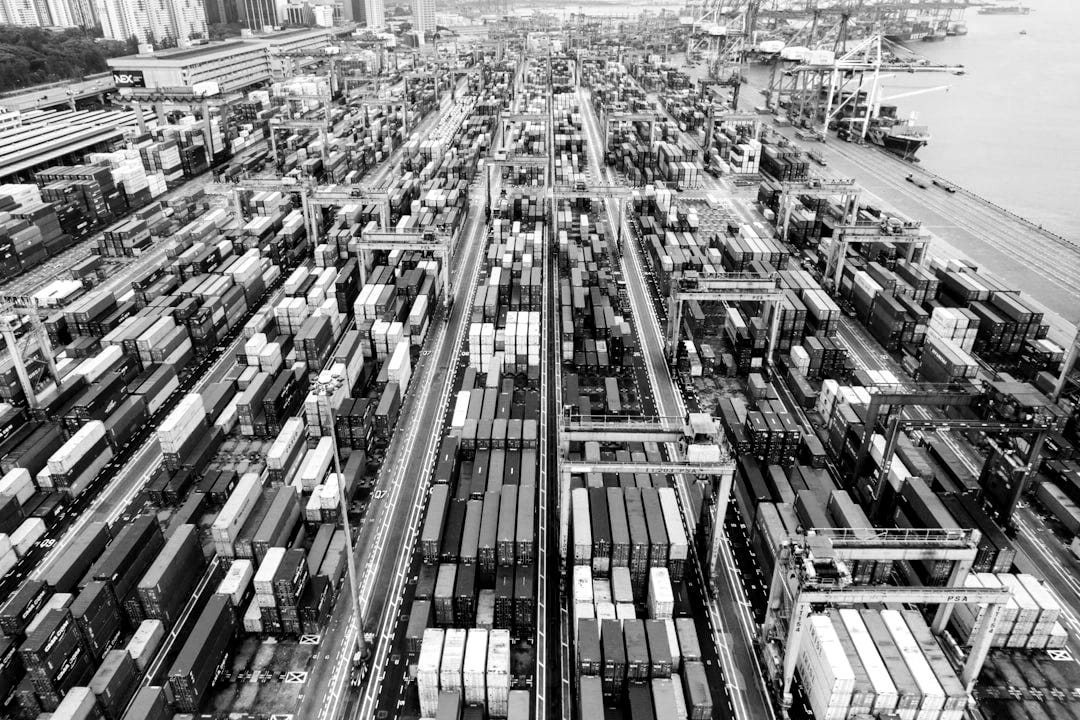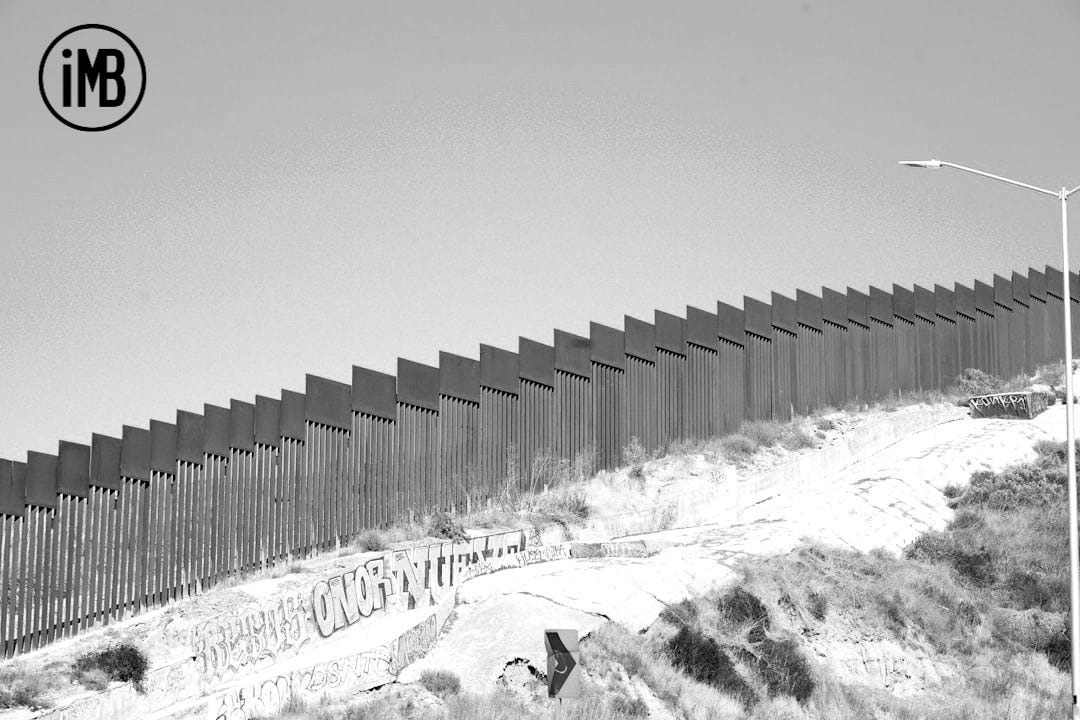The Ripple Effect of US Tariffs on the Automotive Industry
The recent imposition of 25% tariffs on auto imports by the US government has sent shockwaves through the automotive sector, particularly affecting Mexico and investments in Brazil and Argentina.
Preface
I'm currently spending a few days on the beach in Juquehy, on the north coast of the state of São Paulo, Brazil. On the one hand, it's really good to clear my head after a wild time of fast travel to the USA, Mexico and Europe. On the other hand, we at iMB.Solutions have just received two extremely interesting inquiries from two long-standing clients:
Scenario generation for completely new strategic options for the operation in Mexico and a radically rethought value creation with intensive participation of the Brazilian operations.
In both cases, these are European clients in the automotive supply industry. For one of them, we have repeatedly worked on various project missions in Brazil, Argentina, Mexico and Europe. Most of these projects focused on the relocation of value creation between Brazil and Argentina, supply chain optimization in the USMCA economic area - especially with regard to Mexico-USA - as well as projects in the context of process optimization and process mining. For years, we have also been a sparring partner for the strategic planning phase in the budget phase, especially when it comes to generating scenarios and then translating them into tactical measures.
Would like to understand more - read also:
Case Study: Process Mining & GenAI - the road will be longer than expected - or not?
Yes, it is precisely these issues that our two clients are now facing with all their might as a result of the new geopolitical situation.
And it's really good to organize your thoughts for such a challenging project mission, to draw up a solid project plan for the operations in Brazil and Mexico. And then it starts in 10 days.
Stay safe on your project trail.
In the following, I would like to make some basic thoughts transparent for you. You may well have heard or read these things again and again - but here it comes from the perspective of specific project missions.
—Frank P. Neuhaus
Impact on Mexico
Production Capacity Obsolescence
The tariffs could render a significant portion of Mexico's installed production capacity obsolete. This is due to the country's heavy reliance on exports to the US, with nearly 70% of its automotive production destined for the American market.
Economic Consequences
The automotive industry is crucial to Mexico's economy, accounting for a substantial portion of GDP and employment. A slowdown could lead to economic recession.
Potential Shift in Investments
Brazil and Argentina
The tariffs might deter forecasted investments in Brazil and Argentina's automotive sectors. Instead, companies could consider utilizing Mexico's now obsolete capacity, leveraging its existing infrastructure and workforce.
Global Supply Chain Disruption
The tariffs disrupt global supply chains, affecting not just Mexico but also countries like Brazil, which supplies components to Mexico's assembly lines. This could lead to a strategic reevaluation of manufacturing strategies worldwide.
Impact on Brazil
The potential long-term effects on the Brazilian automotive industry due to the US tariffs and possible utilization of Mexico's obsolete capacity include:
Global Supply Chain Integration
Brazil might focus on integrating into global value chains (GVCs) rather than trying to replicate the entire industry domestically. This could involve specialization in specific technologies or components.
Policy Adjustments
Brazil needs to adjust its protectionist policies, gradually reducing tariffs on knowledge-intensive inputs to enhance innovation and competitiveness.
Decarbonization and Innovation
Brazil is exploring decarbonization as a strategy to revive its automotive sector, potentially generating significant revenue from hybrid vehicle production.
Export Opportunities
Despite challenges, Brazil has shown growth in vehicle exports, which could be further leveraged if the industry becomes more competitive globally.
Impact on Argentina
Argentine automakers may adjust their strategies in response to the US tariffs and potential shifts in the automotive industry as follows:
Tariff Reductions and Incentives
Argentina has already reduced tariffs to boost its automotive sector, which could attract investments and enhance competitiveness. This strategy aims to reduce production costs and foster growth, potentially offsetting the impact of US tariffs on global trade.
Focus on Sustainable Technologies
New regulations like Decree 49/2025 encourage the adoption of hybrid, electric, and hydrogen vehicles, offering tariff benefits for these technologies. This could position Argentine manufacturers to capitalize on the global shift towards sustainable mobility.
Export Expansion
Argentina's reforms, including the "Repostock" system, are designed to streamline export processes. This could help Argentine automakers expand their export market share, leveraging agreements like the mutual recognition of automotive model tests with Brazil.
Integration into Global Value Chains
Argentine companies might focus on integrating into global supply chains more effectively, specializing in specific components or technologies to enhance their competitiveness in the international market.
Scenario: Investments from Latin America are redirected to the USA
There is no doubt that the current turbulence caused by the new tariffs is also triggering new evaluations of scenarios within the automotive industry's value chains. As mentioned above, iMB.Solutions has already received the first reactions from former clients as well as current clients.
Although Brazil does not export significant volumes of new vehicles to the USMCA economic area, especially the USA, quite a few suppliers - our client group - are concerned that car manufacturers could now temporarily suspend planned investments or divert them to the USA.
There is no doubt that the Brazilian market will also face rapidly increasing pressure from manufacturing nations such as China, South Korea, Mexico and Canada to ship units to Brazil. Mexico is a particular focus here. On the one hand, Mexico has a free trade agreement with Brazil, as well as lower production costs than the nation on the Sugarloaf Mountain. The reaction of the Economics of Scale alone, with 3.2 million vehicles exported from Mexico to the USA in 2024, shows the potential of Mexico's comparative advantage in automotive production.
From a Brazilian perspective, one should in any case assume the scenario that the nationally producing manufacturers re-evaluate the planned investments. With regard to the possible Brazilian reaction towards Mexico, it can be assumed that it will lead to a quota determination within the free trade agreement.
What does the data from our clients in Mexico show us?
There will probably be a very rapid slump in car sales of around 1-1.5 million vehicles in the USA. In the previous year 2024, total sales were around 16 million vehicles. On average, the sales price for a new car in the USA will increase by around USD 8 thousand; at the peak up to around USD 12-14 thousand. All of this will undoubtedly lead to a reduction of personnel in the final assembly plants in the USA, with huge negative ripples throughout the entire supplier industry in the USMCA economic area.
This is expected to be accompanied by a decline in investment in infrastructure. This development will also stall the development of the market for electrified cars.

Outlook on Mexico
Mexican automotive plants will continue to play a pivotal role in the global supply chain due to several strategic advantages.
Production Capacity and Efficiency
Mexico is a leading producer of vehicles, with over 3.9 million units produced in 2024, and it exports a significant portion to the US and other markets. Its plants are recognized for their efficiency and advanced production capabilities.
Supply Chain Integration
Mexico is integral to the North American automotive supply chain, with about 16% of auto parts used by US assembly plants coming from Mexico. This integration supports both domestic and international markets.
Technological Advancement
The industry is shifting towards electric and hybrid vehicles, with significant investments in automation and robotics to enhance efficiency and competitiveness.
Geographical Advantage
Mexico's proximity to the US and its favorable trade agreements, such as the USMCA, make it an attractive location for manufacturing and exporting vehicles.
Future Outlook
As the automotive industry navigates these challenges, it must adapt to changing trade policies and explore alternative markets. Mexico's competitive advantages, such as low labor costs and strategic trade agreements, might still attract investment, but the path forward remains uncertain. The global automotive landscape is poised for significant restructuring in response to these tariffs.
In summary, it can be assumed that the obsolete capacities for new vehicles in Mexico will take on drastic proportions. The extent to which the detour of investments by the automotive industry from countries such as Brazil and Argentina can compensate for this impending scenario is highly questionable. In fact, it is virtually impossible.
At the same time, markets in South America, above all Brazil, will experience considerable competitive pressure from imported vehicles from Mexico and Asian countries.
Navigating Mexico & Beyond: iMB.Solutions Helps International Companies Thrive in Mexico
International businesses operating in Mexico can benefit significantly from partnering with iMB.Solutions due to their specialized services and expertise. Here are the key benefits:
Key Benefits of Using iMB.Solutions
Flexibility and Agility
Management on-Demand: iMB offers flexible interim management services, allowing businesses to scale operations quickly without long-term staffing commitments. This flexibility is crucial in dynamic markets like Mexico, where adaptability is key.
Project Management: iMB provides tailored project management solutions, ensuring efficient execution of strategic initiatives, which is essential for navigating Mexico's complex regulatory environment.
Expertise in Emerging Markets:
Local Knowledge: iMB has extensive experience in emerging markets, including Mexico, providing valuable insights into local regulations, market dynamics, and cultural nuances. This expertise helps companies navigate the complexities of the Mexican market effectively.
USMCA Expertise: iMB's understanding of the USMCA agreement can assist companies in leveraging trade opportunities and managing supply chains across North America.
Business Development and Transformation:
Strategic Growth: iMB helps companies develop and implement growth strategies tailored to the Mexican market. This includes identifying new business opportunities and optimizing existing operations.
Transformation and Reorganization: iMB assists in transforming business models to adapt to changing market conditions, ensuring companies remain competitive and agile in Mexico's evolving economic landscape.
Implementation-Oriented Consulting:
Hands-On Approach: Unlike traditional consulting firms, iMB takes an active role in project implementation, ensuring that strategies are not just planned but also effectively executed. This hands-on approach is particularly valuable in Mexico, where practical implementation can be challenging.
Risk Management and Mitigation:
Risk Assessment: iMB helps companies assess and mitigate risks associated with operating in Mexico, such as regulatory compliance issues, corruption, and security concerns.
Innovation and Technology Integration:
Process Mining and GenAI: iMB has experience with advanced technologies like process mining and GenAI, which can optimize business processes and improve operational efficiency in Mexico.
Client-Centric Approach:
Tailored Solutions: iMB provides solutions tailored to each client's unique needs, ensuring that strategies align with specific business goals and objectives.
By leveraging these benefits, international businesses operating in Mexico can enhance their operations, navigate local challenges effectively, and capitalize on the region's growth opportunities.
Information Hub
general further reads:
US tariffs ripple through auto supply chains into Mexico - AP News
Mexican auto industry on edge after Trump’s new tariffs on imported cars
Mexican car industry warns that US tariffs will hurt production chains
further reads on Brazil:
U.S. trade measures could impact Brazil's auto industry | Business
[PDF] Brazil's - World Bank Open Knowledge Repository
further reads on Argentina:
New regulations for the automotive industry
[PDF] The Argentine automotive chain since the convertibility crisis
Argentina Offers a Cautionary Tale About Tariffs and Peanuts
Foreign Trade Policy in the Argentine Automotive Industry
Argentine companies on hold as they wait for the dust of Trump’s tariffs to settle
further reads on Mexico:
Key Supply Chain Developments in Mexico for 2025
Why Cars Made in Mexico Are Driving Global Automotive Growth
Assembly Plants in Mexico: Optimizing the Supply Chain for a Competitive Edge
The Growth of Automotive Manufacturing in Mexico














